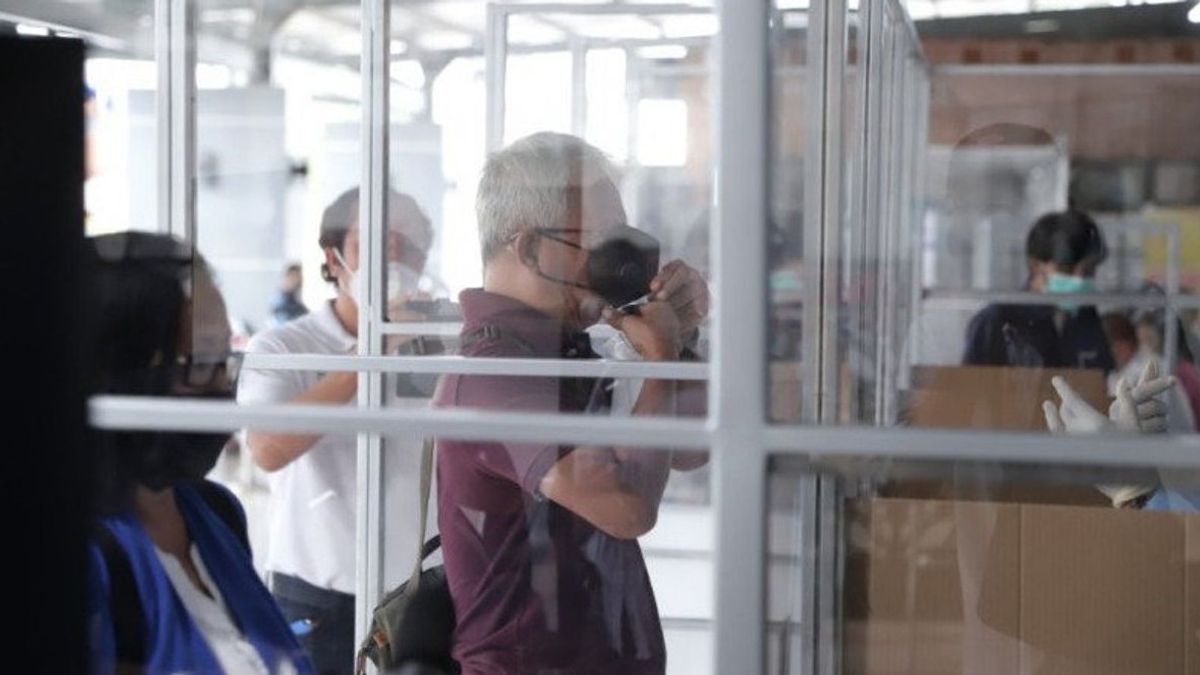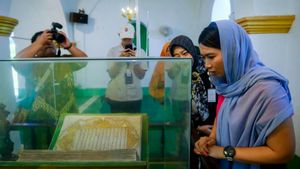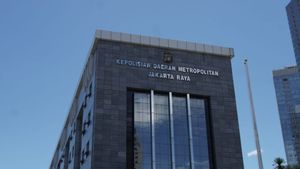JAKARTA - Polymerase chain reaction (PCR) is the test that is considered the most sensitive and effective for use during the COVID-19 pandemic, said health experts from the Indonesian Doctors Association (IDI).
"PCR can be said to be the best gold standard for detecting COVID-19. Patients who are treated have no complaints, if they are tested by PCR they can still be positive because even though the virus is destroyed and in pieces, there are still parts of the virus that have been detected," said the Head of the COVID-19 Task Force. 19 Indonesian Doctors Association (IDI) Prof Zubairi Djoerban quoted by Antara, Friday, October 29.
PCR is even more accurate than other test tools such as antigen, GeNose and antibodies.
"We've used antibodies, it turns out that it's not true (the results) then we can't delete them anymore," he said.
Then the government imposed a test using GeNose or Gadjah Mada Electronic Nose COVID-19 as a rapid diagnostic test tool based on artificial intelligence to detect COVID-19 through exhalation developed by Gadjah Mada University.
"We've used GeNose which is cheap and good. It turned out that the report showed it was not very good, so we removed it," he said.
Currently the COVID-19 test kits recommended by the government, said Zubairi, are only PCR and antigens.
"Antigen is very good but still inferior to PCR," he said.
Zubairi said that the antigen test is currently allowed for air travelers outside Java-Bali with the consideration that the number of people traveling is not more than the regional destinations in Java-Bali.
"Jakarta-Bali flights are now very full. If outside Java-Bali such as Palembang, it is quiet so there is no high risk," he said.
Meanwhile, all domestic travelers to Java-Bali are required to do a PCR test because it has a higher level of accuracy and sensitivity to detect SARS-CoV-2 that causes COVID-19.
The Ministry of Health said about GenoseDirector of Prevention and Control of Directly Infectious Diseases of the Ministry of Health (Kemenkes) Siti Nadia Tarmizi responded to the proposal to stop the use of the GeNose C19 COVID-19 test kit as a condition of travel.
Nadia said that the potential for inaccuracies in the use of GeNose from the results of the examination of travelers was still understandable.
This is because this is only done to screen for COVID-19 exposure for people who are mobile, not as a diagnostic tool for COVID-19 infection.
"GeNose is currently being used as a screening tool. Of course there are limitations to its use policy because it is not a diagnostic tool," Nadia told VOI, Wednesday, June 23.
Regarding the findings of false positives (false positives) or false negatives (false negatives) from the use of GeNose, Nadia admitted that there was indeed a certain percentage of inaccurate potential. Likewise with other test kits such as rapid antigen test.
"Rapid antigen is also not 100 percent. It's just an option to use the test as a travel requirement. There are rapid antigens and PCR swabs as well," said Nadia.
For information, a number of epidemiologists have asked the government, especially the Ministry of Health and the Ministry of Transportation, to stop the use of GeNose C19 as one of the requirements for public transportation.
Epidemiologist from the University of Indonesia, Pandu Riono, said that GeNose was inappropriate as a screening tool at airports to stations. Pandu also did not recommend that GeNose be used as a COVID-19 screening tool in a number of activities.
Because, he said, there is currently no validation from external parties other than Gadjah Mada University (UGM), the maker of GeNose, which states that the tool has an accuracy of up to 90 percent of the corona virus test.
"Avoid using the GeNose COVID-19 screening tool that is not validated on travelers, meetings, offices, hotel visitors, educational activities such as schools and colleges, sporting events, concerts, and so on," said Pandu when confirmed by VOI.
An epidemiologist from Australia's Griffith University, Dicky Budiman also admitted that from the start he did not agree if travelers used the GeNose test results as a condition for traveling.
This is because rumors circulated that there were findings of false negative and false positive results from the use of GeNose. Therefore, the accuracy of the GeNose test is doubtful.
The English, Chinese, Japanese, Arabic, and French versions are automatically generated by the AI. So there may still be inaccuracies in translating, please always see Indonesian as our main language. (system supported by DigitalSiber.id)













